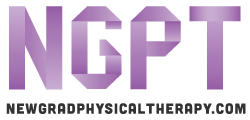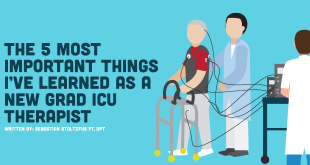by Steve Thompson, MPT, CEO and Owner of Sport and Spine Therapy of Marin
In my 21 years of experience practicing as a PT and 15 years of management/ownership in an out-patient PT in a privately owned clinic, the one question I hear from new graduates is “Do you have a mentoring program?” The answer is always, and has been always, “yes!” However, the form and structure have changed.
Many clinics offer “mentorship” in a job ad, but how does a candidate know if the mentoring program is a right fit for what their needs are?
After fielding these questions, I will offer this bit of advice – “don’t be afraid to ask!” I can tell when someone is serious about what they want from a mentoring program by the questions and details they ask. If you don’t ask what the program entails, you may not get a good experience. You might want to start by asking yourself what it is you want to get out of a mentoring program.
Here are five questions to consider asking yourself and the potential employer:
- How is the mentoring program structured? How long will it last?
- What is included in the mentoring program and what is not?
- Is it customizable to what my needs and wants are?
- Who will be doing the mentoring and have they mentored many new graduates? If so, can I meet with one of those new grads to ask about their experience?
- How long are the mentoring sessions and how often do we meet?
How long should mentorship programs last?
It is my feeling, both as a clinic owner and a supervisor of many new grad PT’s, that a mentoring program should continue for at least the first year of employment. Why so long? For starters, what I have noticed is that most new grads really don’t hit their stride until they are 3-5 years out of school. New grads need the most support and guidance as they start to see a variety of patients; hence, a good, year-long mentoring program. I know that seems strange to think about but if you reference Malcolm Gladwell’s book, Outliers, he speaks of the 10,000-hour rule as a benchmark of reaching mastery. Let’s look deeper into this…
For a new graduate to reach 10,000 hours of treatment, that would be roughly 5 years of experience. This is not to say that you won’t be competent as a PT until you have worked for 5 years. Heck no! The growth of a new grad PT is a gradual climb. As you see more and more patients and you attend more continuing education courses, you will gain more tools in your toolbox. These new skills will, without a doubt, help you become more effective with your patients.
Initially, when a new grad starts with our company, he or she is full of excitement and nervousness about treating patients. Totally normal and I LOVE that! I always say that when a new grad enters the workplace, their PT school has given them enough information to be “dangerous” – not dangerous as if they will hurt someone, but rather that you have enough experience to complete and evaluation and plan of care. Real world patients are, however, never as straightforward as the ones that were hand-selected by their CI in their rotations. Patients nowadays have more and more co-morbidities, which can make completing the evaluation more challenging. PT schools don’t teach you how to handle the complex patients, just how to complete a basic evaluation. Hence why mentoring is so important.
Attributes of a good mentor program
I also feel that the mentoring program should be customizable and flexible. In our clinics, I meet with the new graduates for the first three months of their employment. After that, I have them shadow other PT’s in the clinic so they get a variety of knowledge bases, approaches, backgrounds, and experiences.
Also, the programs are set up such that we focus on a joint or condition in one session and another session might include the new grad asking questions about their patients. The other sessions might include patient management techniques, or reviewing past instructions. Currently, I have two new grads in my clinic that started at the same time. So, we structure our program where every other week it is a combined session with both of them and they get to pick the topic of choice. The other weeks are individual sessions geared specifically to what a PT wants to know.
With respect to how long a mentoring session should be? Well, that depends. Most owners will look at the time spent with the new grad as “lost production time” because that new grad could be treating 1-2 patients in that hour. I look at this time with my new grads as an investment in a wonderful new asset to the company. Hopefully, your new employer feels the same way, but I know of a lot of owners who think of their employees as a cost or expense. When you ask your potential employer about the mentoring program they are offering, and it all sounds good during the interview, but when you start working, the “mentoring” program fizzles out, that is a sure sign of what the owner thinks of his/her employees. If they don’t offer a mentoring program, well you could probably guess what that owner thinks of his or her employees.
Summary
In summary, a new grad has wonderful new skills that were learned in PT school. But remember this, the PT school’s primary focus is not to fully prepare you for your first job. Their purpose is the get the new grad ready to pass the board exams. You first job is where you will gain and build on the foundation of your education to help you create the best version of yourself as the best PT possible. The first job should be considered an extension of the education process and should have a good, flexible, customizable mentoring program.
Finding a mentor
Here’s an opportunity to work with the corporate wellness program for the largest tech company in Cupertino, CA
 NewGradPhysicalTherapy.com The Largest Online Resource For New Grad Physical Therapists
NewGradPhysicalTherapy.com The Largest Online Resource For New Grad Physical Therapists




